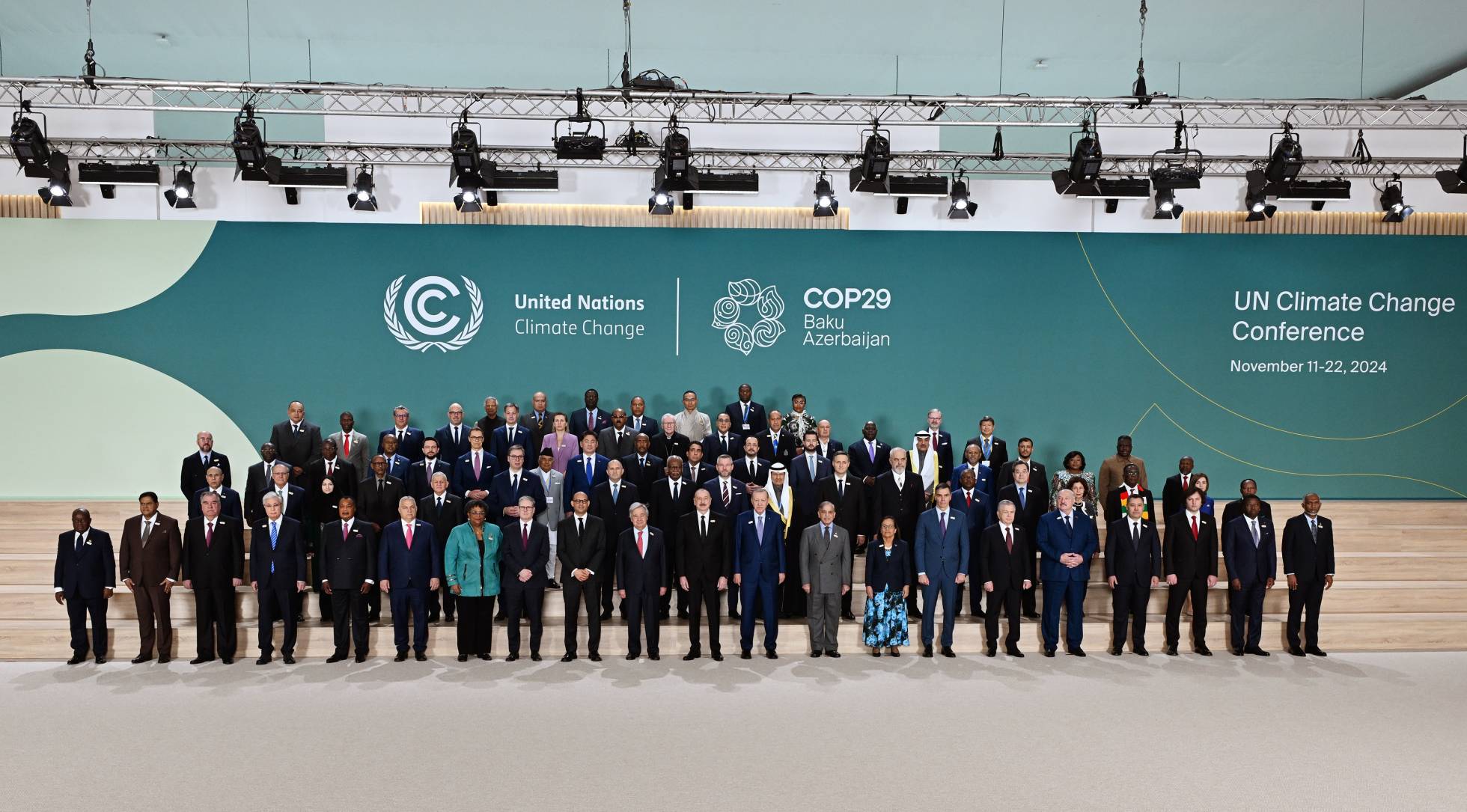Take-off or landing for arts and culture at the annual climate conference in Baku? This question will be answered in the next 24 hours with the conclusion of the proceedings and the publication of the COP-29 conclusions.
COP-28 in Dubai last year was a milestone for the cultural sector. The Group of Friends for Culture-Based Climate Action (GFCBCA) was launched at COP28 with the unanimous adoption of the Emirates Declaration on Culture-Based Climate Action. The historic meeting marked a breakthrough in the global movement to build consensus on culture-based climate action and promote coordinated action and structured and inclusive dialogue among members and stakeholders.
Building on the achievements of last year's meeting, the second High-Level Dialogue took place in the capital of Azerbaijan in the previous days, with the "shared conviction that recognising the cultural dimensions of climate action is critical to achieving effective and sustainable solutions to the climate crisis".
But as negotiations continue in Baku, the real challenge this year seems to be whether a reference to culture will be included in the post-summit agreement. This would signal a more active and formal involvement of cultural actors in future meetings and negotiations. The coalition (GFCBCA) of 40 countries and 25 intergovernmental agencies and organisations is pushing in this direction.
Commenting on this year's Ministerial Dialogue, Sheikh Salem bin Khalid Al Qassimi, Co-Chair of the GFCBCA, said, "It is time for the world to recognise the role of culture as a critical tool for climate action. Culture is also an asset that needs to be protected from the adverse effects of rising temperatures, sea levels and other factors affecting our planet".
The agenda of the second High-Level Ministerial Dialogue included updates on how GFCBCA members are working together to protect cultural heritage from the impacts of climate-related risks. Discussions focused on how to develop adaptive strategies for preserving cultural practices and heritage sites and designing climate-resilient infrastructure, guided by traditional knowledge (indigenous knowledge and local knowledge systems).
Other topics on the agenda included the inclusion of culture-based climate action in the implementation of National Adaptation Plans (NAPs) and Nationally Determined Contributions (NDCs), and strengthening efforts to support vulnerable people through approaches that value diverse knowledge systems and cultural expressions.
Key Objectives of the dialogue were:
● Strengthen the global recognition of culture's pivotal role in climate action, advocating for its integration into climate policy and planning at all levels.
● Establish a clear framework for culture-based climate action, encompassing guiding principles,
goals and expected results from the multilateral culture-based climate action initiative.
● Foster knowledge sharing, capacity building, and collaborative partnerships between developed and developing nations, promoting equitable and inclusive climate solutions.
● Discuss the formulation of methodologies for assessing the effectiveness of culture-based climate
initiatives.
● Leverage the power of culture to drive systemic transitions toward a climate-resilient future, addressing the urgent need for scaled-up adaptation measures.
--
Photo: This file comes from the website of the President of Azerbaijan.
Source: https://president.az/ru/articles/view/67281








